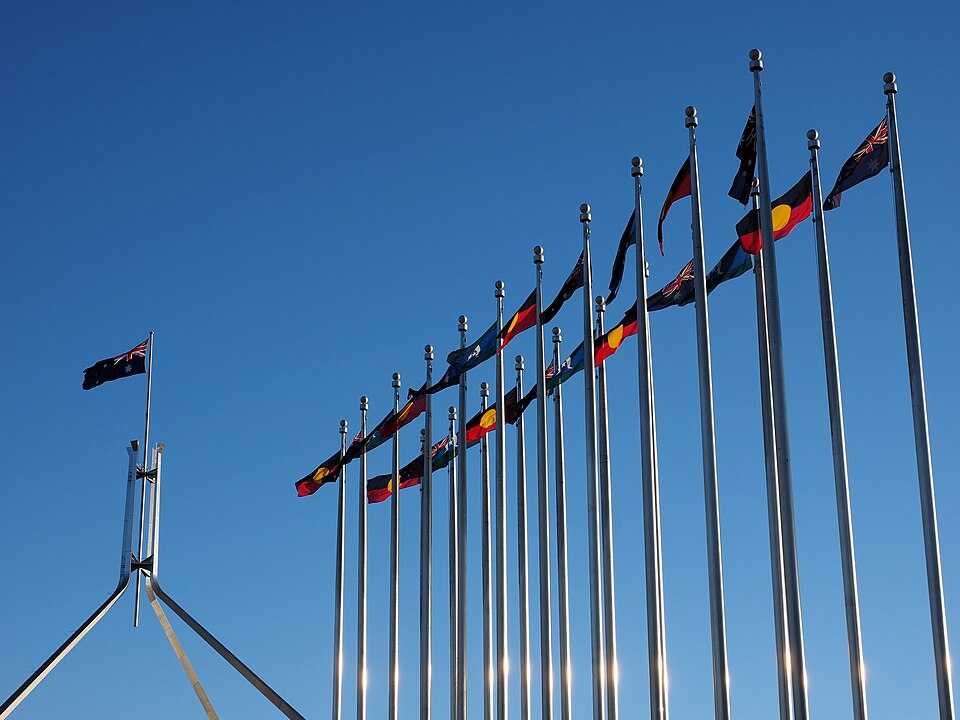With the gruelling war, an overheating economy, and desperately harsh western sanctions, the focus on Russian nationalism has become critical. In order to maintain support for the “special operation,” and indeed his presidency, Vladimir Putin has hiked up the emphasis on love for the mother nation. It appears to be working, if you trust the polls.
The Russian Orthodox Church has emerged as a central pillar in reinforcing the Kremlin’s narrative, intertwining faith and patriotism to bolster public support for both the war and Putin’s administration. Currently, 61.8 percent of the population follows the church, making it a useful tool for bolstering regime support. That support has intensified during the war, with Patriarch Kirill of Moscow, the official leader of the church, being one of the strongest voices of support. In March 2024 the church officially designated the conflict a “holy war” in which “Russia and its people are defending the single spiritual space of Holy Russia.” The notion of Holy Russia—that Russia is a land chosen and blessed by God—conceives of a geographic space that also encompasses Ukraine and Belarus, positioning the war as uniting Ukraine back into the realm of God. More recently, Kirill has gone on to say that Russia is in a “biblical battle” with “the sick west.”
In September last year, this support demonstrated its power in a march of 75,000 in St Petersburg celebrating the 300th anniversary of transferring relics of Russian medieval Saint Alexander Nevsky to St Petersburg. The crowd, which included orthodox and nationalist groups, as well as veterans of the war, chanted “Russians forward!” and “We are Russians, God is with us!” Prince Alexander Nevsky, famous for his defeat of a Swedish invasion, and his later alliance with the Mongolian Golden Horde in the 14th century, has become a rallying figure for Russia’s current conflict with the West. On the day of March Kirill gifted Putin an icon of Nevsky, with both men describing Nevsky as “guardian of the Russian statehood” and “saviour of the Russian ethnos.”
Despite an apparent religious conformity among nationalists, within the Russian military there is an uneasy alliance between Russian orthodox and Muslim groups. A recent military propaganda clip showed Russian soldiers of Christian and Muslim faiths (as well as different ethnicities) praying before going into battle. It ends with the line: “We are Russian, we are with God.” Islam represents 9.5 percent of Russia’s population, and the minority Chechen ethnic group are highly influential. In order to improve morale and cohesion in the military, Russia has had to embrace a diversity of faith. A more extreme version of this can be seen with Chechen special forces commander Apti Alaudinov meeting with Alexey Milchakov, a Russian neo-nazi and leader of the paramilitary group Rusich that has been fighting in Donbas since 2014. Both expressed support for Russian nationalism and cooperation towards winning the war. The meeting came about after both men criticised each other’s ethnic groups’ fighting ability. Such appeals for unity are necessary for a military that has had to recruit from all corners of Russia (and North Korea) to bolster troop numbers.
This necessity for diversity within the Russian military rubs awkwardly against a growing anti-migrant trend in Russian nationalism and government policy. In August 2024, Putin signed a bill allowing migrants to be expelled without a court decision. Nationalist groups, such as Russkaya Obshchina, who participated in the religious march in September, have been working with the state to carry out anti-migrant raids. This has led to more than 60,000 immigrants, mainly from predominantly Muslim countries such as Tajikistan, being deported from Russia in 2024.
As these contradictions in policy illustrate, Russian nationalism finds itself in a complex and confusing state. On the one hand, it leans heavily into a theocratic narrative, while on the other, it adopts a uniquely Russian version of “diversity is our strength” messaging—though this is paired with strong anti-migrant sentiment. The invasion of Ukraine has been framed as a religious war, yet it relies on alliances with Muslims, atheists, and neo-pagan neo-Nazis, all within the context of a war economy that simultaneously suppresses immigration. To understand whether these conflicting messages resonate with the broader population, it is essential to examine the sentiments of the average Russian citizen
According to the Levada Center, the only independent polling group in Russia, a majority of Russians want the war to end (around 54 percent), however as many as 70 percent are against Russia making any land concessions to Ukraine in a peace agreement. This demonstrates that while Russians are growing tired of the war, they still believe intently that the Ukrainian territories belong to Russia. 60 percent of Russians still believe that the Russian armed forces are succeeding on the battlefield. Overall, 67 percent of Russians believe that the country is “going in the right direction.” On the topic of immigration, conversely, 68 percent of Russians prefer stronger policies curtailing migrant flows.
Meanwhile, approval ratings for the government in general, as well as the State Duma, have gone as high as 75 percent despite the war. Although Levada is the closest source for accurate polling in Russia, it is still bound by the limitations polls face in authoritarian countries. For example, dissenters are more unwilling to voice their true feelings or even take part in polls for fear for their safety. A second factor is that most participants get their information on the war and the economy through Russian state media. Few media spaces will be willing to dispute Putin’s war narrative or question the state of the economy. Russian social media such as Telegram and VK similarly tends to focus on winning narratives, meanwhile western social media such as Facebook and Instagram are banned. This all suggests that polling is skewed toward favouring the state.
Perhaps one way we can understand Russian views is through surveys among the Russian speaking population in the Baltics. In a poll conducted in March 2024 by Riga Stradiņš University, researchers found that 38 percent of Russian speakers in Latvia blamed Russia for the war; 16-24 percent disagreed with this position, and 22-33 percent neither agreed nor disagreed. In Latvia, Russian-run traditional media has been banned, however social media platforms are prevalent. The data nevevrtheless shows that, outside the context of authoritarian control, Russian speakers’ feelings are mixed, with many deeply conflicted about the war and the future of Russia.
With the war soon to enter its fourth year, and an economy seemingly hanging by threads, Russians are unexpectedly feeling positive about the future. Russian nationalism is running strong, energised by images and narratives of Russian strategic interests. Much like Russia itself, it is surprisingly resilient.
Evan Freidin is an international relations analyst whose work has been published by the Interpreter, Foreign Brief, The Diplomat, and ANU’s Near East Policy Forum. His writings focus on changing trends within China and the broader Asia-Pacific region. He has received a Masters of International Relations from the University of Melbourne.
This article is published under a Creative Commons License and may be republished with attribution.



